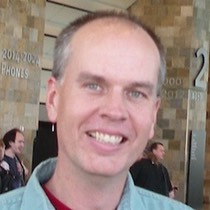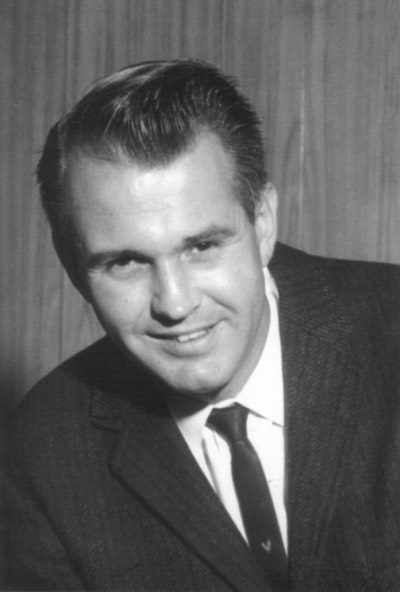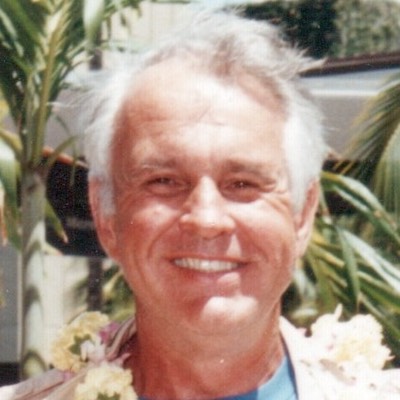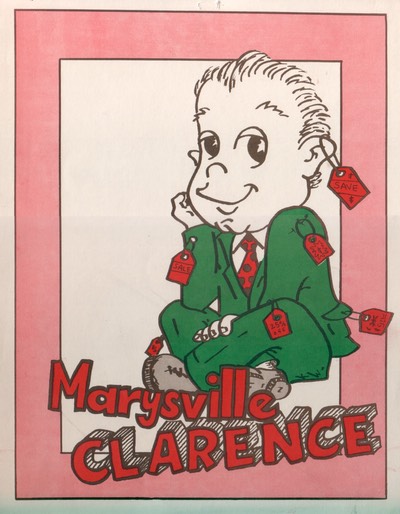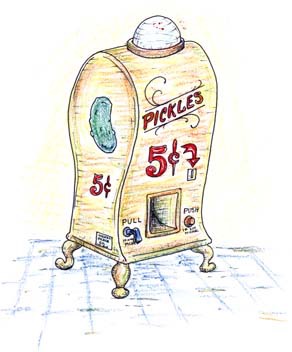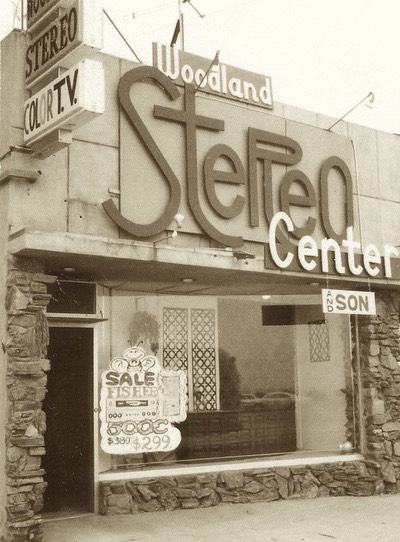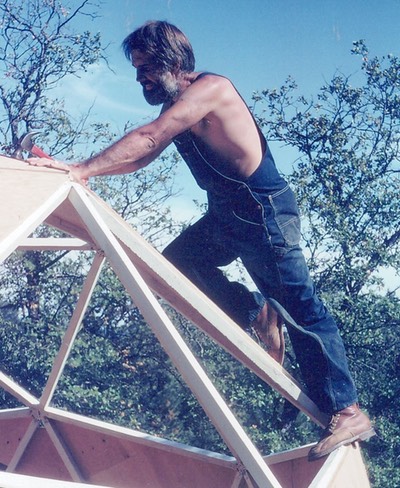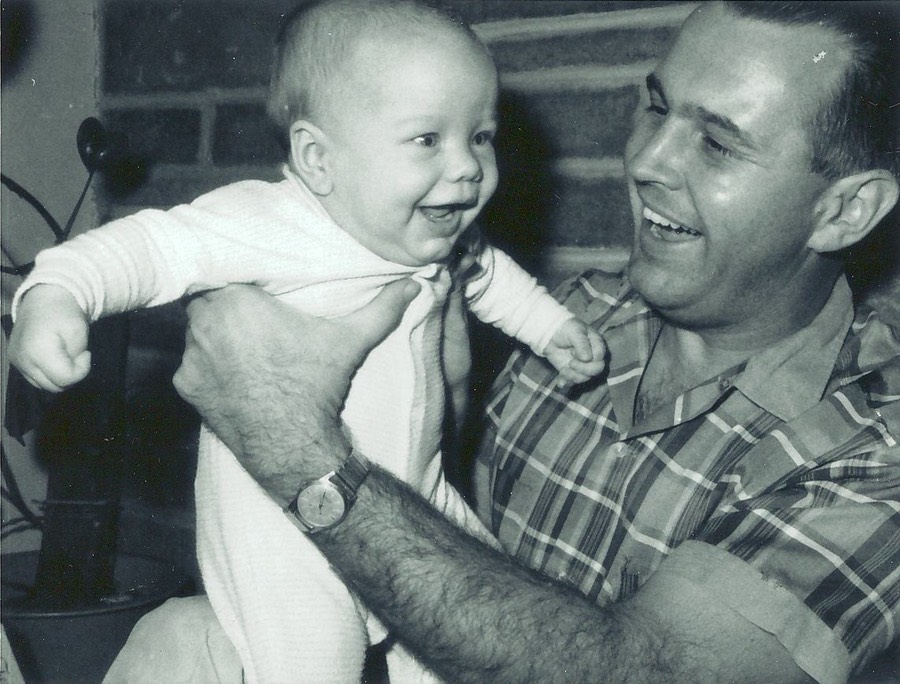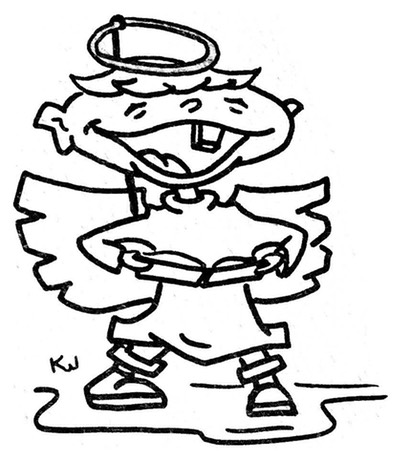Ken Wood, 1932 - …2014
My father passed away yesterday after a long, losing battle with Parkinson’s disease.
And yet, I already was saying goodbye to him in some ways for over a year. That’s why his ending date really wasn’t 2014. Because his Parkinson’s took a bit of him away at a time, to where there wasn’t much left when his body finally finished its journey.
And though many reading this memorial never knew him — or don’t know me, for that matter — this is my memorial to Kenneth Herbert Wood.
These years have taken an especially hard toll on my mother, who could no longer care for him at home. But even with my father at a care facility, she still had many duties to perform, while spending an unbelievable amount of money. When Dilbert’s Scott Adams published his essay “I Hope My Father Dies Soon,” it certainly struck a nerve.
When I would visit him, at first he was mostly “there,” mentally. He even achieved some fame within the facility and made the local TV news with a feature on him, due to his talent at drawing amazing portraits of his fellow residents. (Somehow his shaking hands would calm down when he was drawing.) But then he deteriorated more, mentally and physically. When I would see him, there would be some of the man I remember, but not much. And less each time. So over those months, I found myself saying goodbye to him, at least in my own heart. He was shrinking, reverting, losing memories and physical abilities.
Then, late last week, he took a major turn for the worse, and never woke up. And I’m very sad that he’s gone, but it’s also a blessed relief that it is over.
I try not to think of the recent months where his body, even his face barely resembled its former self. Instead I try to think of the hero that my father was, and replenish my mind with memories of before the Parkinson’s.
My dad was artistically creative his entire life. As long as I can remember he had been drawing, mostly cartoon-style. He would apply that talent to drawings he’d give as gifts to the kids, or make into personal greeting cards for friends, or wherever something graphical was needed, or in support of his work. He’d create advertisements for the local country newspaper and community events.
When I was about 10, he started creating some children’s books. “The Pickle Machine”, “Exactly Like Me”, and “Jeremy Dingle” never were published — he tried but didn’t get any bites from publishers — but they delighted us and have delighted my kids as well.
Another example of how the Parkinson’s took hold was related to one of his children’s books. I had made a color copy of “The Pickle Machine” for my nephew so that he could enjoy it too. But for reasons unknown, my dad decided to rework the story, and had grand plans for changing the story. Though he wasn’t able to draw much, he would obsessively redo parts of the story, having whoever was near him help him cut drawings out, re-write the text, and rearrange sections. And yet nothing of what he was doing made any sense. It got to a point of mania. Finally, in a moment of clarity, he consented to putting the entire project away on a high closet shelf.
Fortunately, the original, unaltered version still rests in my house. I have no desire to keep, or even see again, the Parkinson’s remix.
When I was born, my parents owned a stereo shop back in the sixties, Woodland Stereo Center in Woodland Hills, California. (Yes, one of the brands sold there was Kenwood!) The picture below was taken shortly after I was born, if you notice the addendum to the main sign!
But when I was about seven, my parents – from the generation too old to be considered hippies — got bit by the “back to the land” movement in the early seventies and decided to move from the suburbs of Los Angeles to the country in Northern California. I remember being driven around in our family’s blue VW van while my parents looked for a place to live and start a new life. Finally we found an 18-acre property in the Sierra Nevada foothills, completely undeveloped, and decided to stay.
And on that property, with the help of my mom and some neighbors — and as much as we could, the kids — he built a house. From scratch. And while it was never quite finished – we moved in way before there where amenities such as wallboard or plumbing or electrical outlets — I lived in the house my dad built until I moved away for college.
Though my dad was weakened terribly in his last years — it seemed like the Parkinson’s aged him by more than a decade within the span of a year or two — most of my memories of him were being incredibly strong. He had to be, as a forty-something-year-old homesteader. Carrying two five-gallon buckets of water uphill from a nearby stream, building barns and temporary quarters and then our house, hauling 10-gallon milk cans, my mother proudly called him the “homestead gorilla.”
Ken never had a single career track — the farming never really made a decent living for us — but overall I’d say that his biggest strength was sales. Selling hi-fi’s and stereos, then after moving on from the farming, he’d done well with selling advertising, solar water heaters, encyclopedias (along with my mom in that venture), and so on. A skill that I never could quite grasp, yet he excelled at it and thrived at it.
His biggest love — besides his family — was music, though. His classical record collection — on LP and reel-to-reel tape; later on CD — was enormous. He enjoyed very little in the popular music genre, though he did have a weak spot for the lead singer of the Stone Ponies, Linda Ronstadt (who, as it turns out, is now afflicted with Parkinson’s). While he tolerated the music that his kids listened to growing up, it was Beethoven and Mozart and Schubert and Chopin on the stereo in my house growing up. And opera, which I never really could appreciate the way I eventually started appreciating orchestral music.
In his last year or so, he had a small stereo and a modest collection of his favorite music with him at the “old folks’ home.” I’m glad he had his music to keep him company, though I don’t think he was really able to make use of the equipment for the last few months.
Ken didn’t just listen to music during his lifetime. He was a singer — a tenor — who sang every chance he got. Growing up, I remember going to see him solo in Handel’s Messiah every year. While I never picked up a love for opera, I relish my memory of seeing him perform in Sacramento in the chorus there shortly before his diagnosis. I have a cassette tape — I ought to digitize it — of some of his favorite classical songs that he’d sing. (Schubert’s “Was ist Sylvia” for example, or his parody of “Granada” called “Granola”, a tribute to the crunchy cereal.)
Parkinson’s took away his singing and speaking voice, gradually, though sometimes there were little reprieves. I wasn’t there, but a couple of years ago, there was a memorial service for a friend, at a time when the disease had taken away most of his voice, where he found himself singing, full-strength, a song in tribute at the memorial. For those who knew him there, it seemed like a small miracle. I wish I had been there for that.
I also remember him acting — a talent that completely skipped my generation. But he loved performing in community theatre, and also created a one-man show that he would perform week after week at a local campground resort, where he would play the famed stagecoach robber Black Bart.
Last year, my mom found an old reel-to-reel tape that was labeled somewhat cryptically along the lines of “Baby Announcement.” Intrigued, but with no machine to play it on, I took it home. Some research found a service that would convert a reel-to-reel tape into MP3 audio. Taking a gamble, I ordered a digitized recording. What came back (over a file download) was a treasure. When I was born — I’m the oldest — my dad had come home from the hospital, fired up his tape recorder, and called the relatives to announce my arrival. Hearing his speaking voice at its full strength — he was younger than I am now, actually — was amazing. I could also make out the voices of my grandmothers through the phone. Later in the tape, interspersed with odd recordings of music and television, so I’m glad I kept at it — I found other recordings from my own early childhood that he made while he was watching me. Amazing. What a great vault of memories from my life, from a time when I was too young to remember myself.
My dad was an amazing man and a loving father. And I know we had a good relationship throughout the entire intersection of our lifetimes. And I will miss him terribly.
And after all that Parkinson’s disease took from him, I’m glad that his journey is finally over.
